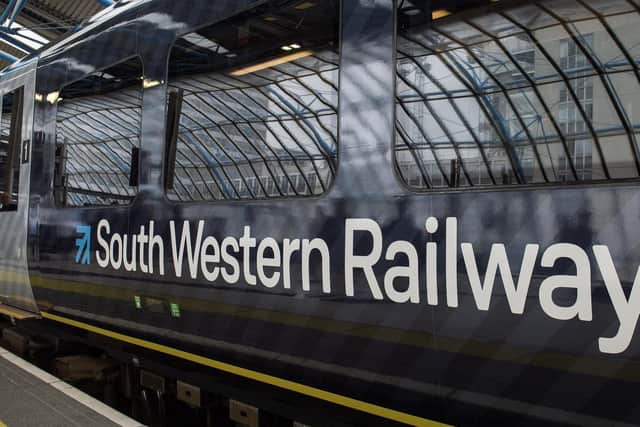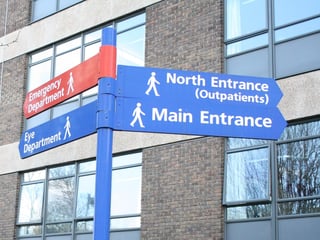Train tickets refund: How to get money back amid coronavirus outbreak
and live on Freeview channel 276
Prime Minister Boris Johnson told people earlier this week that people should avoid ‘non-essential’ social contact and employees should work from home if possible.
The measures are in place to reduce the transmission of coronavirus, and has led to public transport services – including trains, buses and ferries - being reduced or cancelled.
Advertisement
Hide AdAdvertisement
Hide AdIf you have train tickets that are already booked – including season tickets – this is what you need to know:


What is the current government advice on train travel?
The current government guidance is: ‘Avoid non-essential use of public transport, varying your travel times to avoid rush hour, when possible.’
In Portsmouth, South Western Railway and Wightlink have already said they are having to reduce services because of low staff numbers and a fall in demand.
But what if you’ve already purchased a rail season ticket or normal train ticket?
Will I get a refund for train tickets?
Advertisement
Hide AdAdvertisement
Hide AdA spokesperson for the Rail Delivery Group, said earlier this week: ‘Rail companies understand that these are exceptional times and we are committed to playing our part to support the national effort to delay the spread of coronavirus.
‘Train operators have agreed that for tickets they have sold, they are waiving refund fees on most refundable fares and in the case of cheaper advance fares, all operators will be allowing fee-free changes to a trip if someone decides to change when they travel.’
For tickets that they have sold, train operators have decided to waive ‘refund fees’ on most refundable fares, including Anytime, Off-Peak, Super Off-Peak and Rover/Ranger.
Advertisement
Hide AdAdvertisement
Hide AdAll operators have waived the ‘change of journey fee’ for advance tickets, which is normally £10.
What about season tickets?
The Rail Delivery Group explains that season tickets can be refunded, depending on how long is left unused on them, but there may be an admin fee.
Who should I contact to get a refund?
The Rail Delivery Group explains that customers should get a refund from wherever they bought it.
If they got it from a particular train company they should contact them, or if they got it from a third party retailer then they would need to contact them.
What if I have to use trains to commute to work?
Advertisement
Hide AdAdvertisement
Hide AdIf you do have to travel on public transport, Gov.uk explains, “There are general principles you can follow to help prevent the spread of respiratory viruses, including:
- Washing your hands more often - with soap and water for at least 20 seconds or use a hand sanitiser when you get home or into work, when you blow your nose, sneeze or cough, eat or handle food
- Avoid touching your eyes, nose, and mouth with unwashed hands
- Avoid close contact with people who have symptoms
- Cover your cough or sneeze with a tissue, then throw the tissue in a bin and wash your hands
Advertisement
Hide AdAdvertisement
Hide Ad- Clean and disinfect frequently touched objects and surfaces in the home
